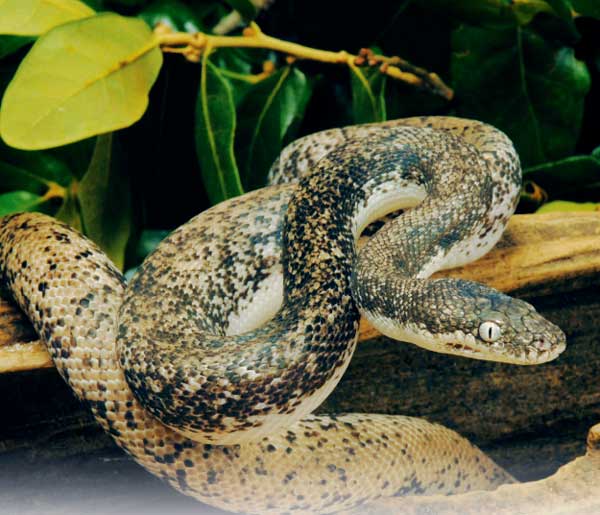Description:
The Savu python is rather undemanding and an easy-to-care-for snake. A 40-gallon terrarium will easily house a pair of adults. Place a heat pad under one end of the enclosure to create a hot spot of about 100 degrees Fahrenheit. The rest of the enclosure can have an ambient temperature of about 80 degrees. Use aspen bedding or bark as a substrate. Place a water bowl, large enough for all the cage occupants to soak in, at the cooler end of the enclosure. A hide should be located in the cool end of the enclosure, with another placed on the hot spot. Hides can be provided using cork bark, natural wood or any commercial hide that is large enough. Savus climb very little, but if you provide some grape vine or other sticks and branches, they might use them—plus, such decorations make the terrarium look pretty. A light is not needed as far as the snake is concerned, but you might want to place a household fluorescent lamp on top of the enclosure so your snake(s) can be more easily viewed. Savus do very well on a diet of large, pre-killed mice and up to small or medium pre-killed rats. Feed them about once a week. Right after the Savu python was first discovered in 1993, this species was exploited and exported to all corners of the globe. Wild imports did surprisingly well in captivity and were renowned for being mellow and easy-to-keep subjects. Some did bite, of course, but this was not the norm. They fetched high prices and were popular. Soon the island was somewhat stripped of the snakes and much like other endemic island species, the pet trade took it’s toll on populations. As of now, exports are very restricted. However, captive breeding is on the increase and this is what you’ll find to buy. There are no morphs that I’m aware of, but if you search very hard you’re likely to find some nice babies here and there. They sometimes pop up in reptile specialty stores and at reptile shows, and rarely on the Internet. The Savu Python has the smallest range of any python, living exclusively on Sawu Island.
Habitat:
Open areas, usually found under stones and other such cover.
Range:
Sawu Island, Indonesia
Scientific Name: Liasis savuensis
Species Group:
Family: Pythonidae
Size: Females get up to 5 feet
Level: beginner
Weight:
Dangerous: No



